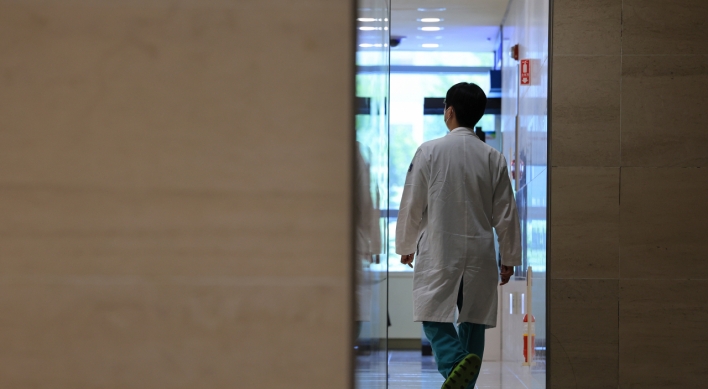Illegal websites, pandemic-related problems hamper growing webtoon market: KOCCA report
By Lim Jang-wonPublished : Dec. 30, 2020 - 16:02

With many webtoons being made into movies, TV dramas and games, the medium is enjoying new heights of popularity. Although COVID-19 has made the creation of webtoons more difficult, it could not stop the fast growth of the industry. At the same time, however, illegal websites that feature pirated webtoons have persisted with no signs of abating, despite governmental efforts.
The Korea Creative Content Agency and the Ministry of Culture, Sports and Tourism released its 2020 annual report on the state of the webtoon industry and webtoon creators last week. Research was conducted on 42 webtoon businesses and 635 webtoon authors in the second half of 2020.
The webtoon market grew to 640 billion won ($589 million) in 2019, marking growth of 37.3 percent year-on-year, according to the report . Revenue from webtoons available for purchase constituted 69 percent of the market while foreign sales accounted for 16.2 percent, publishing sales 4.1 percent and advertisement sales 4 percent. Japan was the largest market for Korean webtoon exports at 30.3 percent, followed by China at 23.9 percent and North America at 13.9 percent.
While Naver controlled 65.1 percent of webtoon traffic and Kakao Page and Daum had combined for 19.5 percent, Kakao recorded more sales at 102 billion won, while Naver recorded 64 billion won for 2019.
In the first six months of 2020, 60.5 percent of businesses reported an increase in sales despite the COVID-19 pandemic, and 71.9 percent reported an increase in foreign sales. However, that does not mean that COVID-19 left the industry unscathed. Of the surveyed webtoon businesses, 51.2 percent reported having trouble creating webtoons while 46.5 percent reported difficulties with the overseas distribution of webtoons. In addition, 32.6 percent of the businesses expected sales to decrease an average of 30.4 percent in the coming year due to COVID-19.
The report on webtoon authors showed that creators with serialization experience this year earned an average of 48.4 million won, of which those that serialized the entire year earned 74.6 million won on average.
Women accounted for 60.8 percent of the authors. While 69.9 percent of the creators did both the drawing and writing, 11.8 percent worked only on the story and 18.3 percent only on illustrating. Also, 52.6 percent used assistants to help with the webtoon creation.
Around 31.9 percent of the authors serialized on portal sites Naver and Daum while the rest serialized on platforms that specialize in webtoons.
While 23.1 percent of the authors reported diminished opportunities in signing new contracts and serialization due to the spread of the novel coronavirus, 18.7 percent of authors reported an increase in the time for creating webtoons due to pandemic-related delays or the cancellation of serialization.
Meanwhile, the webtoon industry was plagued with illegal circulation of webtoons, which is estimated to cause annual damage of around 318 billion won. A focus group interview of people using illegal websites to read webtoons showed that the readers were aware of the illegality of their actions, but did so because purchasing the webtoons through legal means would pose a financial burden.
Many teenagers who read pirated webtoons also thought that censoring by platforms, such as Naver, needed to be less strict, citing the case this year where a webtoon character got drunk on soft drinks because alcohol in the webtoon was censored.
Naver came under public scrutiny throughout the year for violent and sexual content in some of its popular webtoons.
The Culture Ministry has conducted a campaign every year since 2018 aimed at changing the public‘s perceptions to stifle the illegal circulation of webtoons. The ministry also worked with law enforcement authorities to shut down 25 illegal websites and arrest 22 organizers in 2018.
Over 66 percent of webtoon authors surveyed reported that they had seen their work on an illegal website and less than 7 percent thought that the government was doing a good job of stopping the illegal circulation.
“There is still a prevalent mindset that webtoons and comics on the internet can be read for free,” the KOCCA report said, leading people to think viewing webtoons through illegal routes is not a serious crime.
By Lim Jang-won (ljw@heraldcorp.com)
-
Articles by Lim Jang-won








![[Kim Seong-kon] Democracy and the future of South Korea](http://res.heraldm.com/phpwas/restmb_idxmake.php?idx=644&simg=/content/image/2024/04/16/20240416050802_0.jpg&u=)










![[Today’s K-pop] Zico drops snippet of collaboration with Jennie](http://res.heraldm.com/phpwas/restmb_idxmake.php?idx=642&simg=/content/image/2024/04/18/20240418050702_0.jpg&u=)